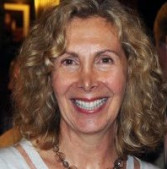Speaking & Workshops
Fill out our Speaker/Workshop Request Form if you'd like to bring a GGSC speaker or facilitator to your organization!
Experts from the Greater Good Science Center give keynote presentations and lead interactive workshops for a wide range of events, organizations, and industries, spanning business, tech, health care, education, and more.
The main types of engagements we deliver include:
- Keynote presentations that range from 30 minutes to two hours
- Interactive workshops ranging from three hours to three days
- Small group retreats, ranging from a half-day to several days
- Consulting engagements that help shift organizational cultures and/or shape products and services
Our presentations typically elicit praise and gratitude:
“The speakers were terrific!”
"Thank you for bringing the rich and groundbreaking research in such an accessible and entertaining way. Please keep up the great work!"
“I really like the mindfulness moment with the (butterfly) hug.”
Some of the many organizations that have partnered with the GGSC to help their teams flourish:
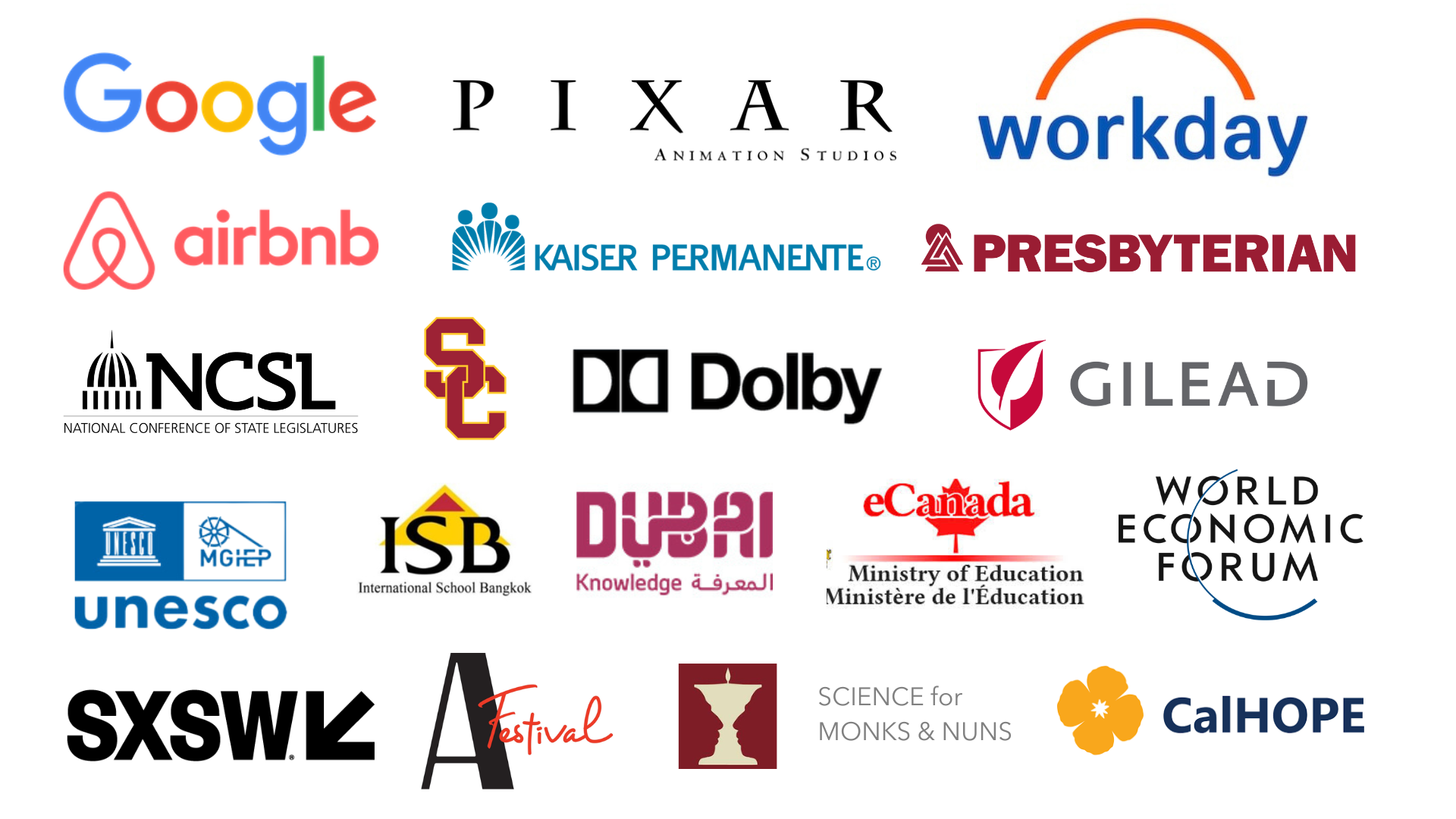
The Greater Good Science Center is committed to supporting organizations working in public service and with underserved populations; we make discounts and scholarships for these organizations available on a case-by-case basis.
Below are some of the topics that GGSC speakers can cover in their presentations. All of these programs are based on the most up-to-date scientific research, particularly from the fields of psychology, business, and neuroscience; their length and format can be customized.
The core goal of most GGSC presentations is for participants to come away with concrete, research-based strategies that can be implemented—individually or in teams—to boost emotional well-being, support the well-being of colleagues and employees, and foster a workplace culture of happiness, compassion, and connection.
Featured Speakers & Facilitators
- Kia Afcari, Director, Greater Good Workplaces
- Emiliana Simon-Thomas, Science Director
- Juliana Tafur, Bridging Differences Program Director
- Vicki Zakrzewski, Education Director
- Amy L. Eva, Associate Education Director
- Maryam Abdullah, Parenting Program Director
- Hooria Jazaieri, Assistant Professor of Management, Leavey School of Business
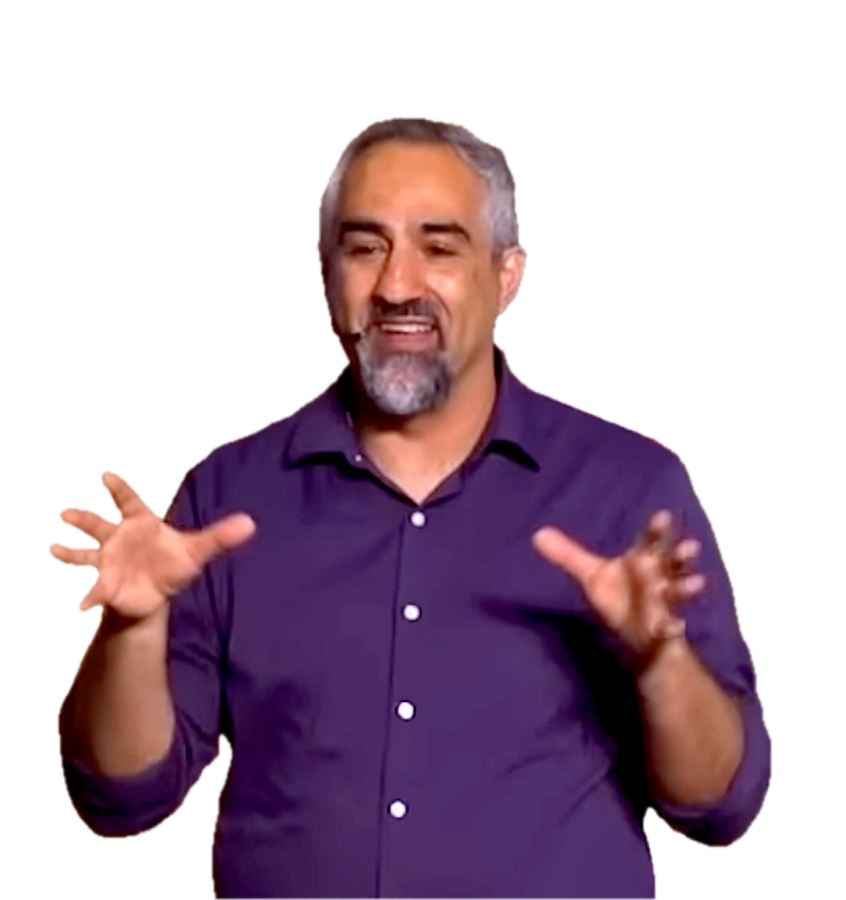
Kia Afcari
Director, Greater Good Workplaces
Biography
Kia is the Director of Greater Good Workplaces at GGSC. He has over 20 years of experience helping leaders, teams, and organizations with collaborative change and has served as a consultant to a wide variety of organizations, including tech, biotech, and fintech companies, healthcare organizations, universities, NGOs, UN agencies, and nonprofits. Kia grounds his work in the science of prosociality and uses creative methods like “instant dance parties” and Boal-informed theater techniques to achieve results. He is a certified executive coach, an Appreciative Inquiry Facilitator, Zenger Folkman 360 Extraordinary Leader Facilitator, and Core Strengths Facilitator.
Kia’s TEDx talk on How We Can Reshape Diversity, Equity, and Inclusion Together has over 77,000 views, and for his work supporting major culture change efforts at scale, Kia was awarded the Chief Learning Officer Magazine’s Silver Award for Innovation for his accomplishments in helping to shift the organizational culture of UC Berkeley’s 8,000 staff.
Popular Talks/Workshops
Prosocial Profitability: Why Kind Workplaces Are More Successful
In this keynote, you'll discover how prosocial leadership and encouraging positive behaviors can revolutionize organizational performance. Drawing from cutting-edge research, this talk reveals how fostering kindness, altruism, and employee well-being enhances productivity, reduces turnover, and boosts profitability. Explore the surprising ways prosocial CEOs, altruistic managers, and organizational citizenship behaviors impact team engagement, customer satisfaction, and shareholder value. Attendees will leave inspired by real-world examples and evidence-based strategies, learning how doing good is not just ethical—it’s smart business.
Culture Reimagination Playshop
What is the culture you have, and what is the culture you want? In this novel and energetic workshop, often done within the setting of a team or company retreat, participants use interactive theater techniques to build a “human sculpture” of their current culture, which leads to a deep conversation about the culture as it stands. Then, participants build a sculpture of the desired culture of their organization, leading to key insights about the future state and the changes that need to occur to get from here to there.
Gratitude at Scale: How to Fuel Organizational Success
In this practical talk and workshop, participants not only experience the surprising power of gratitude, they learn the science behind why gratitude can have such a big impact on people and organizations. Through experiential exercises, we learn simple practices that can be incorporated into work settings like team meetings, 1-on-1 sessions, and organizational rituals. We then consider how to scale gratitude, making it go viral inside your organization so you can see the real benefits of gratitude that lead to organizational success.
The Enlightened Manager
Becoming a manager marks a profound transition from “doing” to “getting things done through others”. All of a sudden, no matter what industry we’re working in, we find ourselves in the “people business”. In this ½ day workshop, we delve into ins and outs of becoming a prosocial manager, one who leverages key people skills to foster engagement, connection, and performance. Not only do participants learn about the science of how prosocial managers make an impact on the bottom line, they learn how to implement key team rituals that build connection, increase psychological safety, and inspire performance.
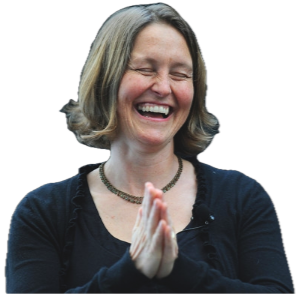
Emiliana Simon-Thomas
Science Director
Biography
Emiliana R. Simon-Thomas, Ph.D., is the science director of the Greater Good Science Center, where she oversees its fellowship program, Expanding Gratitude project, and is a co-instructor of the GGSC’s “Science of Happiness” online course.
Emiliana earned her doctorate in Cognition Brain and Behavior at UC Berkeley. Her dissertation used behavioral and neuroscience methods to examine how negative states like fear and aversion influence thinking and decision-making. During her postdoc, Emiliana transitioned to studying pro-social states like love of humanity, compassion, and awe. From there, she served as Associate Director/Senior Scientist at CCARE (the Center for Compassion and Altruism Research and Education) at Stanford University, focusing on how compassion benefits health, well-being, and psychosocial functioning.
Today, Emiliana’s work spotlights the science that connects health and happiness to social affiliation, caregiving, and collaborative relationships, as she continues to examine the potential for—as well as the benefits of—living a more meaningful life.
Popular Talks/Workshops
The Science of Happiness at Work
People who are happier at work are more committed to their organization, rise to positions of leadership more rapidly, are more productive and creative, and suffer fewer health problems. More and more, research is suggesting that happiness should not be an afterthought for workplaces; it should be an essential goal, entwined with the kinds of 21st century skills that are key to individual and organizational success today. Building on the GGSC’s popular online course series on The Science of Happiness at Work, this presentation offers research-based strategies to feel happier at work and boost satisfaction, engagement, and collaboration in your organization.
The Science of Stress, Burnout, & Resilience
No organization is immune to stress and even risks of burnout. This presentation draws on a large body of scientific research to identify which factors can help individuals and organizations respond to challenges with resilience. It provides a framework to understand the scientific roots of burnout and nurture strength and resilience within a team or organization.
Emotional Intelligence: Empathic Communication and Connection
Clear and effective communication between colleagues, superiors, and clients is an invaluable asset--it is the cornerstone of workplace connection. Building and sustaining meaningful relationships at work is associated with greater resilience to stress, productivity, and engagement at work. This presentation highlights the research on best practices for effective and enjoyable communication, including these key areas: empathic listening, addressing emotional misunderstanding, grounding techniques and generating joy amid difficult conversations.
The Power of Gratitude
An inspiring and insightful talk delivered by renowned researcher Emiliana Simon-Thomas, exploring the profound impact gratitude has on our emotional, social, and physical well-being. Drawing from cutting-edge research and compelling real-world examples, Emiliana unpacks how practicing gratitude strengthens relationships, enhances resilience, and fosters a greater sense of purpose and happiness. Attendees will gain practical strategies for cultivating gratitude in daily life and understanding its transformative power for people and organizations.
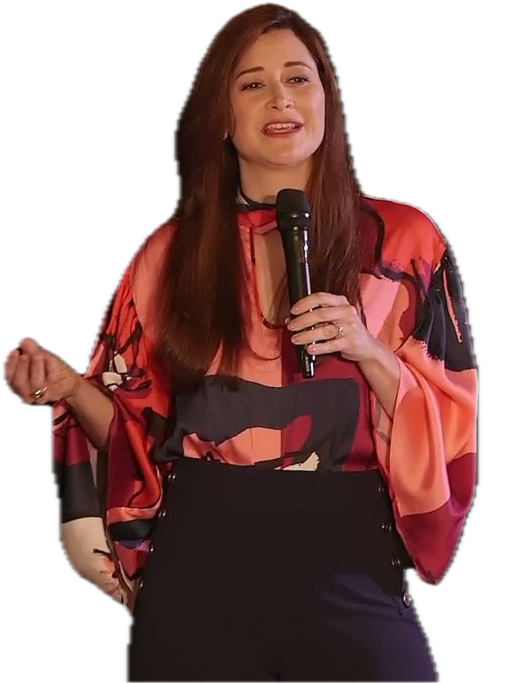
Juliana Tafur
Bridging Differences Program Director
Biography
Juliana Tafur is the inaugural director of the Bridging Differences program at UC Berkeley’s Greater Good Science Center. In this role, she has guided Bridging Differences’ evolution from a small initiative into a robust program, cultivating multi-year partnerships with national foundations to support field-building, training, and storytelling on bridging across racial, socioeconomic, ideological, and other divides. Supported by an amazing team, she has expanded the work into communities, campuses, and organizations nationwide, developing resources and learning experiences that help people build social connection and a stronger sense of belonging.
A TEDx speaker, creator of Listen Courageously, former Emmy-nominated senior producer and content executive, Juliana loves channeling her creative energy into building programs and designing immersive learning experiences. She frequently leads keynotes and workshops and produces multimedia content that make bridge-building skills widely accessible and actionable. She’s an honors graduate of Northwestern University and a 2021–2022 Obama Foundation Scholar at Columbia University. She lives in Boulder, Colorado, with her husband and two boys and is proud to support her home state through Belonging Colorado, a bold initiative that brings people together in new ways, strengthens community resilience, and expands Coloradans’ sense of who belongs.
Popular Talks/Workshops
The Science of Bridging Differences
Juliana Tafur’s keynote talk, The Science of Bridging Differences, offers a powerful exploration of how empathy and communication can overcome deep social and cultural divides. Drawing on cutting-edge research and her extensive experience in facilitating transformative dialogues, Tafur reveals practical strategies for fostering understanding and connection. Participants will discover how science-backed practices, such as active listening and cultivating curiosity, can help bridge differences and build more inclusive communities. This talk equips audiences with actionable insights to navigate polarization, create meaningful connections, and embrace shared humanity in both personal and professional contexts.
Fostering Connection in Difficult Times
In her keynote talk, Fostering Connection in Difficult Times, Juliana Tafur delves into the essential role of human connection during moments of stress, uncertainty, and conflict. Drawing from evidence-based practices and her extensive experience facilitating impactful conversations, Tafur provides practical tools to bridge divides and nurture meaningful relationships even in challenging circumstances. This talk empowers participants to build resilience, deepen empathy, and create inclusive environments that promote understanding and collaboration, offering a much-needed pathway to thrive in an increasingly polarized world.
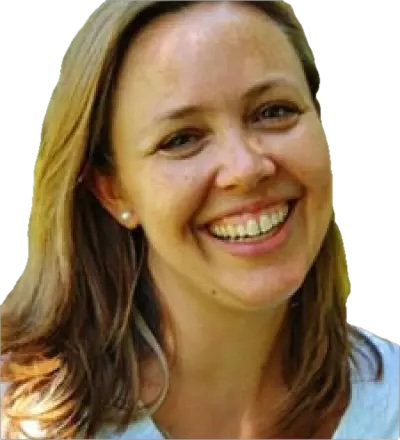
Vicki Zakrzewski
Education Director
Biography
Vicki Zakrzewski, Ph.D., is the founding education director at the Greater Good Science Center, where she translates the science of compassion, empathy, gratitude, awe, forgiveness, and other social, emotional, and ethical skills to improve the well-being of students and educators. She writes articles, gives talks and workshops all over the world, designs online courses for educators, and is the creative lead for the GGSC’s new online resource for educators, Greater Good in Education. Vicki also serves as the co-associate editor of SEL practice for Social and Emotional Learning: Research, Practice, and Policy, sits on several advisory boards, and consults and collaborates with educational organizations. Sample collaborations include Harvard’s EASEL Lab and Making Caring Common; the CalHOPE project, providing SEL training to every California educator; CASEL’s California Collaborating States Initiative; the Learning and Policy Institute at Stanford University; Generation Citizen; UNESCO’s Mahatma Gandhi Institute of Peace and Sustainable Development; the Delhi Ministry of Education’s Happiness Curriculum; Science for Monks and Nuns in Dharamsala, India; the Knowledge and Human Development Authority in Dubai, U.A.E.; the Mind and Life Institute (of which she is a fellow); the Jim Henson Company; and Pixar/Disney on The Emotions Survival Guide—a follow-up book for children based on the movie Inside Out. A former teacher and school leader, she earned her Ph.D. in Education and Positive Psychology from Claremont Graduate University.
Popular Talks/Workshops
The Science of Prosocial Human Development for Education
A quantum shift in how we educate our children is taking place in schools all over the world. Academic knowledge alone is no longer sufficient in helping students to cultivate happy, productive, and meaningful lives, and to make a positive contribution to their communities and the world. Indeed, a 2014 study found that emotional health and prosocial (kind and helpful) behavior in childhood had greater long-term impact on adult well-being than academic success. In addition, the rapidly growing body of research on social-emotional learning, mindfulness, ethical development, mindsets, identity, purpose, and other non-academic topics—or what we here at the Greater Good Science Center call the “Science of Prosocial Human Development”—is deepening our understanding of the learning process and, at the same time, challenging our beliefs about what exactly we are educating for. In this workshop, participants learn how the practical application of this science can be used to help them build classrooms and schools where both the students and adults thrive and where education becomes about more than just test scores and future job skills.
Helping Children Build Happy and Meaningful Lives
Helping children cultivate a meaningful life is one of the noblest aspects of both parenting and teaching. Not only does this contribute to a child’s well-being, but also helps to foster a more compassionate and resilient society. Drawing on cutting-edge research from psychology and neuroscience, Dr. Vicki Zakrzewski highlights the strong connections between the cultivation of a meaningful life and children’s social-emotional well-being and academic achievement. For instance, children who simply count their blessings have higher levels of optimism, increased life satisfaction, and decreased negative feelings—and they feel better about their schoolwork. Dr. Zakrzewski’s overview of this research shows how leading a meaningful life isn’t just good, but good for you and your children. Topics covered include awe, hope, mindfulness, self-compassion, and gratitude.
Awe in Education: Creating Learning Environments that Inspire, Motivate, and Heal
The experience of awe can help ground us, reminding us of what is beautiful, inspiring, and meaningful about life. For education professionals, awe can transform our classrooms and schools, and help us remember why we became educators in the first place: to help students create lives filled with purpose and joy. In this workshop, Dr. Zakrzewski explores how to apply the cutting-edge science of awe in classrooms and schools. Learn how awe enhances academic learning, motivation, and student and teacher well-being—and how you can create inspiring educational environments, filled with curiosity, discovery, and "awesome" possibility. You will learn about the eight wonders of awe, explore how awe benefits our brains and bodies, and find real-life examples and practices to help you bring more inspiration, meaning, and purpose to your students.
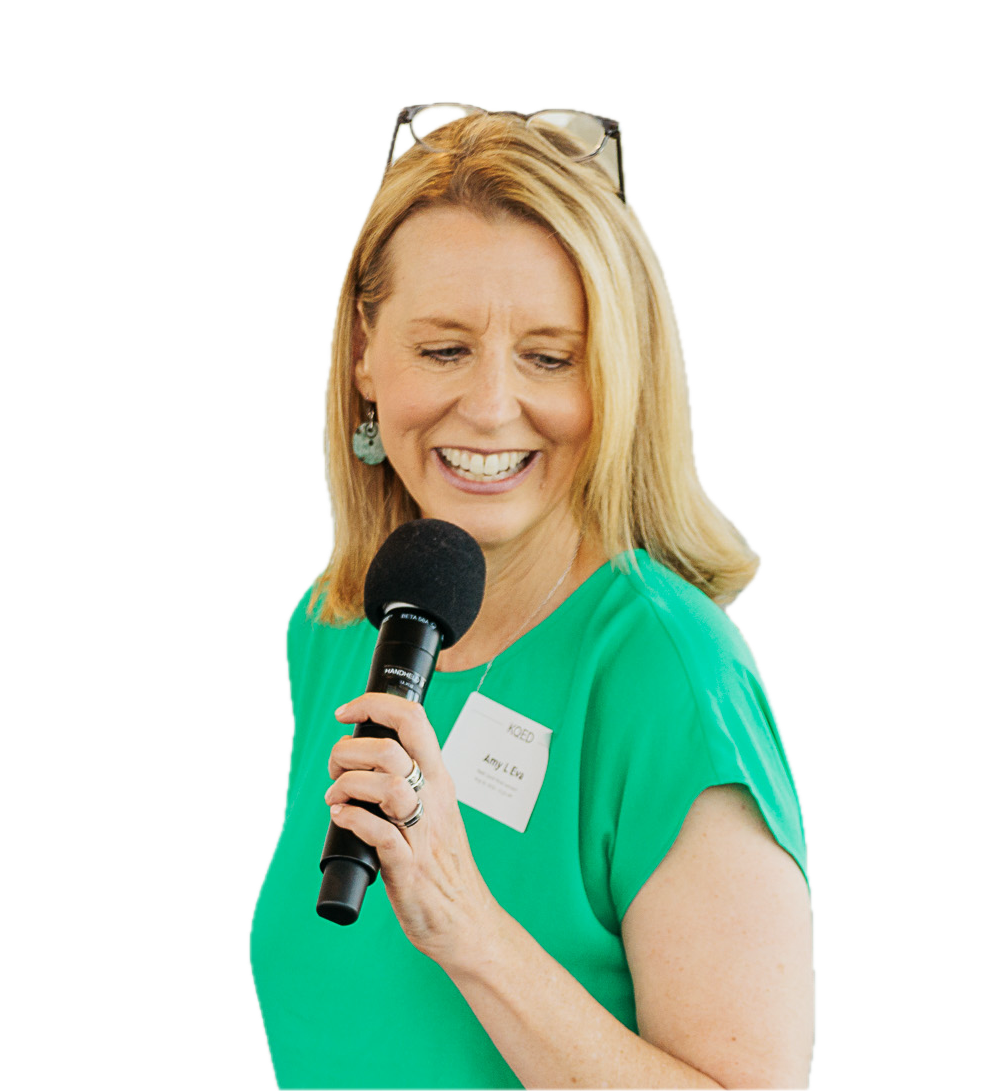
Amy L. Eva
Associate Education Director
Biography
Amy L. Eva, Ph.D., is the Associate Education Director at the Greater Good Science Center at UC Berkeley. As an educational psychologist and teacher educator with over 30 years in classrooms, she currently writes, presents, and leads online courses focused on student and educator well-being, mindfulness, and courage. She is also one of the key developers of the website, Greater Good in Education, which features over 300 science-based practices for creating kinder, happier schools where everyone belongs.
As a researcher, Amy has published in the areas of teacher education, metacognition, adolescent mental health, and mindfulness-based interventions with youth. She has also written numerous articles for Greater Good Magazine (as well as Edutopia, Mindful, and The Huffington Post).
Over the last several years, she has been part of a team that develops free online resources and supports for educators across California, and she has facilitated statewide social and emotional learning communities of practice for educational leaders. Her new book, Surviving Teacher Burnout: A Weekly Guide To Build Resilience, Deal with Emotional Exhaustion, and Stay Inspired in the Classroom, features 52 simple, low-lift strategies for enhancing educational professionals’ social and emotional well-being.
Popular Talks/Workshops
Teaching with Hope: Strategies for Resilience and Collective Well-being
With the many challenges facing educators today, we need spaces for rest, reflection, and renewal. This keynote will explore how we can cultivate a thriving learning community centered on care, compassion, and connection. Together, we will reflect on our "why," explore strategies for navigating difficult emotions with kindness, and consider how to create inclusive spaces where students and colleagues feel safe, valued, and heard. Through shared stories, practical tools, and moments of optimism, we will reignite hope and discover ways to sustain our well-being while supporting the children we serve.
How to Be Empathetic without Suffering So Much
In our interconnected world, the ability to empathize deeply with others is both a gift and a potential source of personal distress. This keynote addresses the fine balance between maintaining genuine empathy and protecting oneself from emotional burnout. Drawing on insights from the Greater Good Science Center, we will explore how to transform empathic distress into empathic concern—a shift that fosters resilience and effective support for others. Attendees will learn practical strategies to manage their emotional responses, ensuring that their empathy remains a source of strength rather than a pathway to suffering.
Improving Relationships in Schools: Bridging for Belonging
When students experience a sense of belonging, they thrive academically and emotionally. Likewise, a supportive school environment reduces staff burnout and strengthens educators' self-efficacy and capacity for connection. This keynote explores the profound impact of empathy, curiosity, and compassion on both student and educator well-being. Grounded in research, we will examine how fostering social and emotional well-being in schools enhances academic achievement, motivation, and positive, prosocial behavior while reducing stress and exhaustion. Through practical strategies and inspiring insights, we will discover how small acts of attention and care can transform school culture, creating a more resilient and compassionate learning community where everyone belongs.
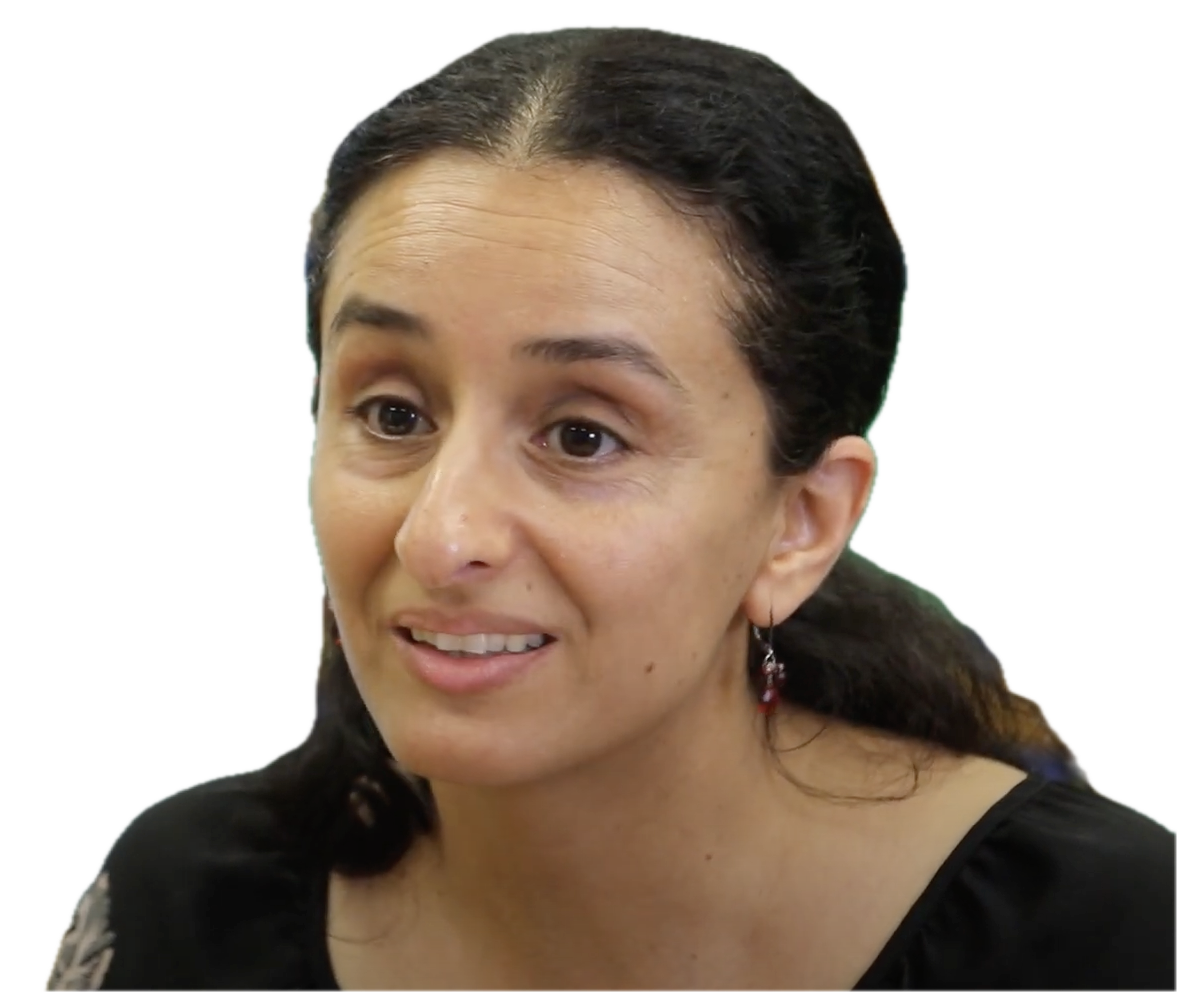
Maryam Abdullah
Parenting Program Director
Biography
Maryam Abdullah, Ph.D., is the Parenting Program Director of the Greater Good Science Center. She is a developmental psychologist with expertise in parent-child relationships and children’s development of prosocial behaviors. At GGSC, Maryam’s role is to support organizations providing parenting education to raise caring children and to share the latest parenting science findings on Greater Good. Prior to joining GGSC, she was an Assistant Project Scientist at the University of California, Irvine Child Development School in the Department of Pediatrics, a school-based behavioral health program where she provided parenting and child interventions, oversaw its clinical outcomes and program evaluation, and mentored undergraduate students with research projects. Her research experiences include exploration of parent-child relationships, early development of children with autism spectrum disorder, and traditional behavioral and canine-assisted interventions for attention-deficit/hyperactivity disorder. She was the recipient of the University of California, Irvine Health System ARIISE Award for Respect. Maryam was born and raised in the Bay Area.
Popular Talks/Workshops
Compassion & Empathy for Parents
In the journey of parenthood, cultivating compassion and empathy is essential not only for children's development but also for parents' well-being. Drawing from her extensive work at the Greater Good Science Center, Dr. Maryam Abdullah will explore how self-compassion can reduce parental stress and depression, fostering a more nurturing environment for children. She will discuss the significance of expressing warmth and understanding toward children, emphasizing how these practices enhance their sense of being loved and contribute to their growth into compassionate adults. Attendees will gain practical strategies to balance empathy with self-care, ensuring a harmonious family dynamic that promotes resilience and emotional health for both parents and children.
Compassion Fatigue: Navigating the Emotional Toll of Caring
For parents, educators, and caregivers, the deep emotional investment in others’ well-being can sometimes lead to exhaustion and overwhelm—a phenomenon known as compassion fatigue. In this keynote, Dr. Maryam Abdullah draws from research and insights from the Greater Good Science Center to explore how we can sustain our capacity for care without burning out. She will offer practical strategies to cultivate self-compassion, set healthy emotional boundaries, and transform empathic distress into resilience. Attendees will leave with tools to care for themselves while continuing to support those who rely on them, fostering a healthier balance between giving and well-being.
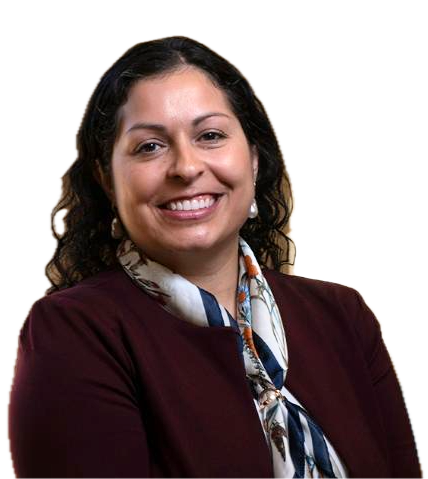
Hooria Jazaieri
Assistant Professor of Management, Leavey School of Business
Biography
Hooria Jazaieri is an Assistant Professor of Management at the Leavey School of Business at Santa Clara University. Prior to joining LSB, she was a Postdoctoral Fellow at the Kellogg School of Management at Northwestern University. She received her Ph.D. from the University of California, Berkeley in Social Psychology, her MA from Santa Clara University in Counseling Psychology, and her BS from the University of Washington in Psychology. Outside of academia, she has professional work experience in a variety of industries including tech, consulting, and mental health.
Hooria has done extensive work with the Greater Good Science Center over the years and her research examines individual reputation and emotion. She studies the process of how people gain, lose, and recover their reputations, and how reputational information is stored and communicated in networks. She speaks on how business can be a positive force on society with a focus on how mindfulness, gratitude, and positive relationships can have a huge impact on organizational performance. Through a variety of settings ranging from baseball fields, sorority houses, wineries, and Japan, her work examines the content, structure, and dynamics of individual reputation. Her work on emotion centers on discrete emotions (gratitude, hope, compassion, awe) and how people regulate their emotions and the emotions of others. She takes a multi-method approach to her research, employing both qualitative and quantitative methods in experimental laboratory and field settings. Her work has been published in leading academic journals in the fields of management and psychology. In 2022, she was selected by Poets & Quants as one of the Top 50 best business professors. In 2023, she was awarded the Outstanding Faculty Award from the ACE Leadership Program.
Popular Talks/Workshops
How Gratitude Can Transform Your Company and Its Bottom-line
We spend nearly a third of our lives at work, yet the workplace is often where gratitude is least expressed and received. While many associate gratitude with the holiday season, exceptional leaders understand that fostering a culture of gratitude year-round is key to building a thriving organization. This interactive session delves into the latest research from psychology and organizational behavior, revealing how gratitude can boost employee engagement, morale, and resilience—ultimately driving business success. Participants will explore practical, evidence-based strategies for embedding gratitude into daily interactions, leadership practices, and company policies. By the end of the session, attendees will be equipped with the tools to cultivate a more positive, motivated, and high-performing work environment.
Harnessing Business as the Most Powerful Force for Good in Society
What if businesses could be the most powerful force for good in society? What if they used their global influence to tackle the world’s most pressing challenges? This inspiring and thought-provoking session challenges traditional notions of business by demonstrating its potential as a driver of positive social impact. From tech to manufacturing to sports, discover how businesses are rewriting the playbook by blending the high-stakes world of business with transformative leadership, innovative organizational culture, and deep community engagement. Through case studies, interactive discussions, and practical frameworks, together we’ll reimagine the role of business to ignite meaningful social change and build a legacy that matters.
Transforming Conflict into Connection: Strengthening Relationships for Workplace Performance
Interpersonal conflict occurs in all walks of life from formal settings (e.g., between colleagues) to informal settings (e.g., between friends). Rather than avoiding conflict or viewing it as a barrier to achieving goals, participants will learn how to communicate more effectively and transform conflict into opportunities for deeper understanding, collaboration, and connection. Through evidence-based techniques and interactive exercises, attendees will develop practical communication strategies to manage difficult conversations, build psychological safety, and foster stronger, more meaningful relationships. By the end of the session, participants will be equipped with tools to turn conflict into productive discussions.
The Power of Mindfulness and Mental Health to Drive Workplace Success
The human mind wanders approximately 47% of the time, including when we’re at work. When our minds wander, we tend to think about things that make us feel stressed and unhappy. The good news is, we can change this reality. Grounded in research from psychology and neuroscience, this session explores how mindfulness practices and mental health initiatives enhance focus, resilience, productivity, and emotion regulation. Through guided exercises and real-world applications, participants will learn practical strategies to cultivate present-moment awareness to manage stress and anxiety, improve work-life balance, and enhance emotional intelligence. By the end of the session, participants will be equipped with skills to hone their attention and presence to improve their mental health and well-being.
“I love learning more about the science of gratitude and how it affects your body and brain. That feels really amazing to me and something I can share with skeptics.”
Fill out our Speaker/Workshop Request Form if you'd like to bring a GGSC speaker or facilitator to your organization!
